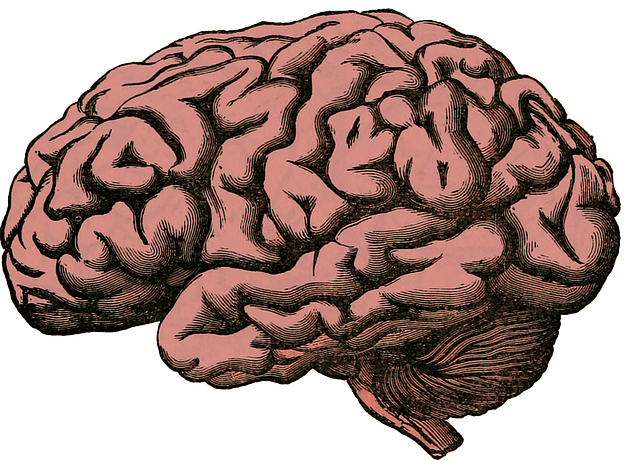Understanding Mental Health Data is key to effective Golden Dissociative Disorder (GDD) therapy, involving structured assessments, interviews, and questionnaires. Advanced algorithms in data analysis uncover hidden patterns, enabling personalized GDD treatments that integrate communication strategies. This tailored approach focuses on individual-centric understanding of underlying mechanisms, including past traumas and coping strategies, for improved patient outcomes, especially with Mind Over Matter principles in GDD Therapy. Public awareness campaigns also play a role in improving access to specialized GDD care.
Mental health data analysis has emerged as a powerful tool in understanding and treating complex conditions like dissociative disorder. This article explores the intricate process of analyzing behavioral patterns through advanced techniques, with a focus on Golden Dissociative Disorder Therapy (GDDT). We delve into the collection, preparation, and interpretation of mental health data, showcasing how these steps enable personalized treatment approaches. By harnessing data’s potential, GDDT offers promising avenues for managing dissociative symptoms and enhancing patient outcomes.
- Understanding Mental Health Data: Collection and Preparation
- Advanced Techniques for Analyzing Behavioral Patterns
- Interpreting Results: Personalized Dissociative Disorder Therapy
Understanding Mental Health Data: Collection and Preparation

Understanding Mental Health Data is a pivotal step in delivering effective therapy and treating various conditions, including Golden Dissociative Disorder (GDD). The collection process involves gathering comprehensive information about an individual’s psychological state through structured assessments, clinical interviews, and self-reported questionnaires. These tools are designed to capture symptoms, behaviors, and personal experiences that contribute to the diagnosis and treatment plan.
Data preparation is a meticulous task, requiring careful cleaning and organization. This stage ensures that the collected data is accurate, consistent, and ready for analysis. It involves handling missing values, identifying outliers, and transforming variables to meet the analytical requirements, ultimately enabling therapists to apply evidence-based practices like Mood Management and Mind Over Matter principles, as well as facilitate Social Skills Training, to support clients’ recovery journeys.
Advanced Techniques for Analyzing Behavioral Patterns

In the realm of mental health data analysis, advanced techniques are transforming the way we understand and address behavioral patterns. One such innovative approach is the application of sophisticated algorithms to uncover intricate connections within vast datasets. These methods enable researchers and clinicians to identify subtle yet significant trends, offering valuable insights into various conditions, including Golden Dissociative Disorder (GDD). By delving into complex data landscapes, professionals can tailor interventions more precisely, aiming for effective Depression Prevention strategies that cater to individual needs.
Effective communication strategies play a pivotal role in this process. Through the analysis of patient interactions and feedback, healthcare providers can refine their approaches, ensuring a supportive environment conducive to mental wellness. By integrating these advanced techniques with empathetic Communication Strategies, the field of mental health care is poised to deliver more personalized and impactful treatments for conditions like GDD, ultimately enhancing patient outcomes and quality of life.
Interpreting Results: Personalized Dissociative Disorder Therapy

When analyzing mental health data, especially for conditions like Dissociative Disorder (DD), interpreting results requires a nuanced approach tailored to each individual’s unique experience and history. The goal isn’t just to identify symptoms but to understand the underlying mechanisms that contribute to DD. This involves delving into the patient’s past traumas, coping mechanisms, and any co-occurring disorders, all of which play a significant role in shaping their dissociative experiences. By integrating these factors, mental health professionals can design personalized therapy plans that address the root causes.
One promising therapeutic approach is Golden Dissociative Disorder Therapy, grounded in mind over matter principles and positive thinking. This method encourages patients to reframe negative thoughts and beliefs, fostering a more adaptive response to traumatic memories. Public awareness campaigns development around DD has also contributed to improved understanding and access to specialized therapy, ensuring individuals receive the support they need for their journey towards healing and regaining control of their lives.
Mental health data analysis has evolved, offering valuable insights into complex conditions like dissociative disorder. By understanding and interpreting these data, we can develop targeted therapies, such as the promising Golden Dissociative Disorder Therapy approach. Advanced techniques enable us to recognize behavioral patterns, leading to personalized treatment plans that enhance patient outcomes. This integrated approach, combining robust data analysis with evidence-based practices, is key to improving mental health care.














